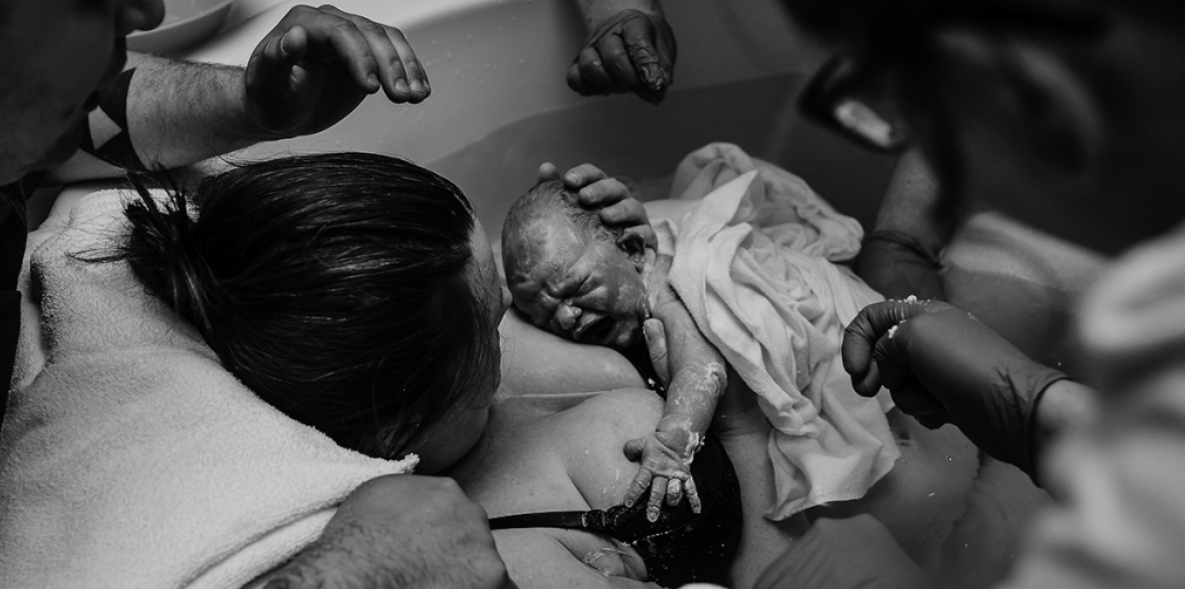
Midwifery care respects pregnancy as a state of health, and birth as a normal experience.
Midwives provide continuous care in a relationship of mutual respect with you and your family. They view decision-making as a shared responsibility between you, your family, and caregivers, though you are the primary decision-maker. Midwives respect your right to informed choice about your care and place of birth.
Scope of Practice
Midwives are health professionals who provide care and support during pregnancy, labour, birth, and care for the first six weeks after the baby is born. Midwives view pregnancy as a state of health, and birth as an important and special experience.
Their care includes:
- Visiting clients for 30 to 60 minutes during the prenatal and postpartum period (or more, if needed)
- Screening and lab testing (including ordering ultrasounds)
- Educating and counselling (guidance through pregnancy, preparing for labour and birth, and infant feeding)
- Prescribing medications
- Attending your labour and birth
- Accessing medical assistance when needed
- Dealing with many labour and birth-related emergencies
Generally, doctors are not involved in a low-risk pregnancy but midwives may consult with doctors if a need arises.
Informed Choice and Choice of Birth Place
Midwives view decision-making as a shared responsibility between you, your family, and your healthcare providers. You and your midwives will discuss your wide variety of options such as what lab tests you or your baby have, where you plan to give birth, and so on.
Midwives guide you through labour and birth in your birth place choice: at Ode’imin, in hospital, or at home. You and your midwives will discuss your wishes and create a plan according to your pregnancy and where you want to have your baby.
Client Roles and Responsibilities
You have an important role in your care. To make informed decisions about your care with the midwives, you need to seek information, express your needs and expectations, and community situations that may affect your care.
Continuity of Care
Generally, midwives work in groups of three to four. Relationships are important in midwifery care. Our goal is for you to feel connected to the people supporting you throughout your care.
Discussion, Consultation and Transfer of Care
Midwives consult with doctors or other healthcare professionals if a need arises. Sometimes, we ask the other provider for advice. In other situations, the doctor takes over the care (transfer of care). There are certain situations where midwives choose to involve another healthcare professional.
Consultation
- Medical conditions that are not managed by midwives (i.e. asthma or hypothyroidism)
- Mental health concerns (counselling, eating disorders program and anxiety clinic)
Transfer of Care
- Induction of labour
- High blood pressure
- Diabetes involving insulin
Talk with your midwives about when we may consult or transfer care. For more information, see www.midwives.mb.ca
Supportive Care
If midwives transfer your care or your baby’s care to a doctor, they might take a supporting care role. How involved your midwives are will depend on the situation. In some cases, the midwives will help you and your medical team make a plan and help where they can. Other times, the doctor will take over you and your baby’s care.
Second Attendants
Wherever you birth, two healthcare providers will be in attendance: one caring for you, and the other caring for your baby. Your birth will be attended by two midwives if you choose to birth at home or at Ode’imin. If a birth is progressing rapidly, or a second midwife isn’t available, we may call paramedics to assist with the birth. For hospital births, a midwife usually attends the birth with help from a nurse.
Right to get a second opinion
You have the right to seek a second opinion at all times throughout the course of your care. You also have the right to transfer care to another care provider at any time.
Concerns and Complaints
Please let your midwives know if you have a concern about your care. You may also contact Client Relations at clientrelations@wrha.mb.ca or 204-926-7825 or Gwen Kydd, WRHA Midwifery Manager at gkydd@wrha.mb.ca or 204-794-1285.
Confidentiality and Access to Records
Midwives keep all your health information completely confidential. At the start of care, they will ask for your consent to share information with other health care providers as necessary. Ask your midwife if you want to see a copy of your records. If you are no longer seeing your midwives and want to access your personal health information, you can contact the Privacy Officer for Midwifery Services, Gwen Kydd at gkydd@wrha.mb.ca or 204-794-1285.
Student/Supervised Practice Arrangements
We are committed to growing the midwifery profession and there may be students or midwives under supervision involved in your care. They will be introduced to you during your pregnancy.
For more information, please visit www.midwives.mb.ca.





